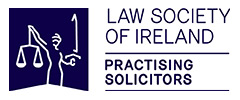ELDERLY LADY MADE WARD OF COURT DESPITE HAVING SIGNED AN ENDURING POWER OF ATTORNEY
The Enduring Power of Attorney (EPA) was introduced several years ago and allows persons to execute an EPA in case they become mentally incapable in later years.
An interesting recent High Court case allowed an elderly lady to be admitted in to Wardship despite her having signed an EPA some years earlier giving her son control over her financial affairs.
She suffered a head injury in 2017 and her short-term memory became very poor afterwards. She was also diagnosed with dementia. One of her sons, ET, agreed to move in with her to care for her. However, the other siblings became concerned about the level of care he was providing her. They claimed she was often left alone overnight and that both she and her house were left in an unkempt and dirty state. They said that ET had taken over control of her life and prevented her from seeing other family members or neighbours, using Covid as an excuse.
In January 2022 they arranged for a HSE inspection where the visiting officials reported the gate locked and their elderly mother confused and unclean. They proposed further inspections, but ET cancelled those.
More importantly, the family members discovered a sum of € 87,000 had been taken out of their mother’s account by ET, within a 15-month period, without any explanation. It was also stated in evidence that ET had suffered a judgement against him for a seven-figure sum. In October 2019, ET had brought his mother out to execute an EPA with him as the sole Attorney dealing only with her financial affairs, but this was never formally registered.
In February 2022, three of her adult children made an application to the High Court to admit her to wardship but this was opposed by ET. He argued that the earlier 2019 EPA was sufficient to meet her needs and that his mother wished him to take control of her financial affairs and had allowed him take money when he wanted. He had attempted to register the EPA with the Wards of Court office, but this was refused because of the family application for Wardship.
The judge found the mother’s financial affairs were not being properly managed at all and she noted that while the son admitted taking money from her bank account, he never had accounted or explained how these monies were being used.
The court was satisfied that ET was not properly caring for his mother, never brought her to her GP for routine check-ups and had not maintained her pacemaker. He had apparently prevented his other siblings from seeing his mother despite their clear desire to do so.
The court held the son’s outstanding application for registration of the EPA did not prevent it from making a Wardship order. Assessing the medical evidence and the urgency of the situation, the court held that it would not adjourn the Wardship application to allow the registration of the EPA to take place.
The elderly lady was then admitted in to Wardship, and the General solicitor was appointed a committee of her person and estate. The court was adamant that ET should not be part of her committee due to the very serious deficits in his mother’s care to include her financial affairs.
The ruling suggests that if an earlier EPA is not being properly managed by those entrusted, the courts may well intervene and bring the vulnerable party affected directly in to Wardship.
In the matter of Mrs. AB [2022} IEHC 448.
If you would like to discuss any aspect of Wardship’s or EPA’s please do not hesitate to contact Brendan Noone of our office on 043-3346440 or at brendan@connellansolicitors.ie



